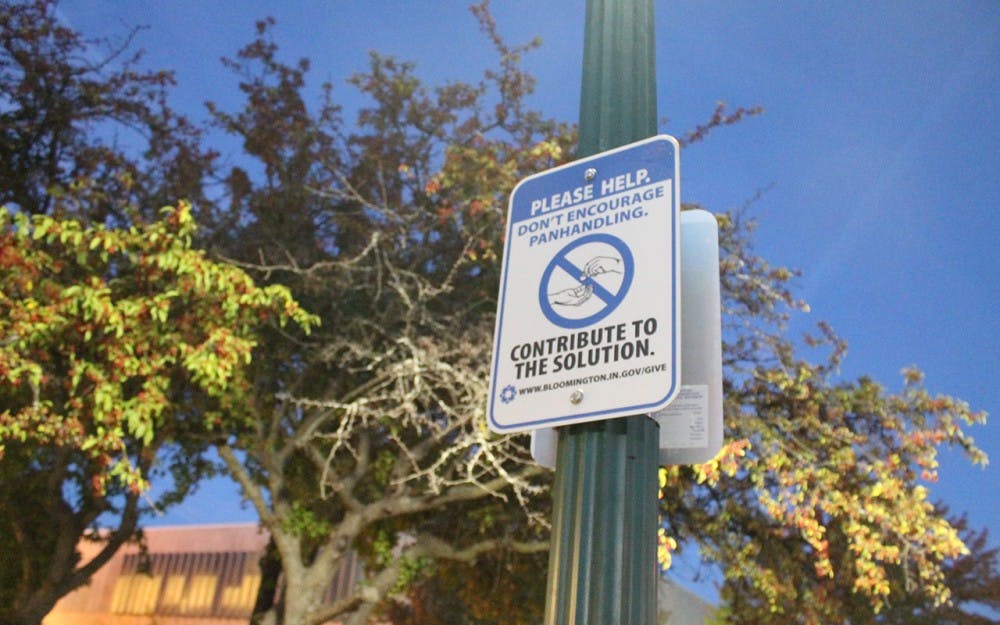As college students and Bloomington locals walk into or leave the bars on Kirkwood Avenue, they are asked for money. Homeless men and women and college students ask for donations, yet these two groups of people are treated differently.
IU student Jessica Mann said she did not understand why the city is cracking down on homeless people and their panhandling but not on college students who do the same thing.
“I think it’s a clear double standard,” Mann said.
Mann said she disliked Bloomington wasting money on new signs, many of which have been stolen, that discourage panhandling.
Panhandling is described by the Indiana Code as the practice of soliciting money or donations from someone on the street or passing by in a public space, according to the City of Bloomington website.
The 28 signs that were put up around downtown encourage donations to organizations rather than individuals on the street.
Mann said money needs to be spent on housing and other services instead.
“Stop blowing funds on things like unevenly enforced signs,” Mann said. “Start investing in low-barrier shelter and rehab services.”
Mann said she sees the college students as the aggressive panhandlers, rather than the homeless who sit with their signs.
Nikki Dombrowski, a sophomore at IU and a canner for IU Dance Marathon, said her committee has actually tried to move away from something that might be construed as aggressive panhandling in order to get better results.
“We try to be upbeat and happy,” Dombrowski said. “It’s about your persona.”
Canners and Dombrowski’s IUDM committee have moved away from asking for donations to asking if students and locals have any spare change.
“I know I never have any cash on me,” Dombrowski said.
She also said it can be hard when many people are canning because sometimes people will not participate or have a bad attitude.
“Some people just hold out the bucket and expect people to donate,” Dombrowski said.
Dombrowski said for the most part her experiences with canning have been positive. She said she did have friends who were confronted by an older woman who thought canning for money was terrible and tried to punish them.
“She claimed to be a witch,” Dombrowski said. “She tried to put a curse on them.”
Some of the best times for IUDM and other groups to can are during bar hours. Technically, this is one of the times when panhandling can cross the line.
Soliciting money after sunset or before sunset is one of many ways that someone can become an aggressive panhandler.
There have been no reports in more than a month of any canners being charged with panhandling.
Dombrowski said she is not aggressive, and her experiences have mostly been positive. The worst sometimes comes from Bloomington locals who refuse to look at them as they ask for spare change, she said.
“People will ignore you, which sucks,” Dombrowski said.
Bloomington Police Department Capt. Steve Kellams said the best way to avoid aggressive panhandling, at least from homeless people, is to donate directly to charitable organizations.
“Those people who want to do something for the homeless are much better served by giving money directly to those groups who provide services,” Kellams said.






